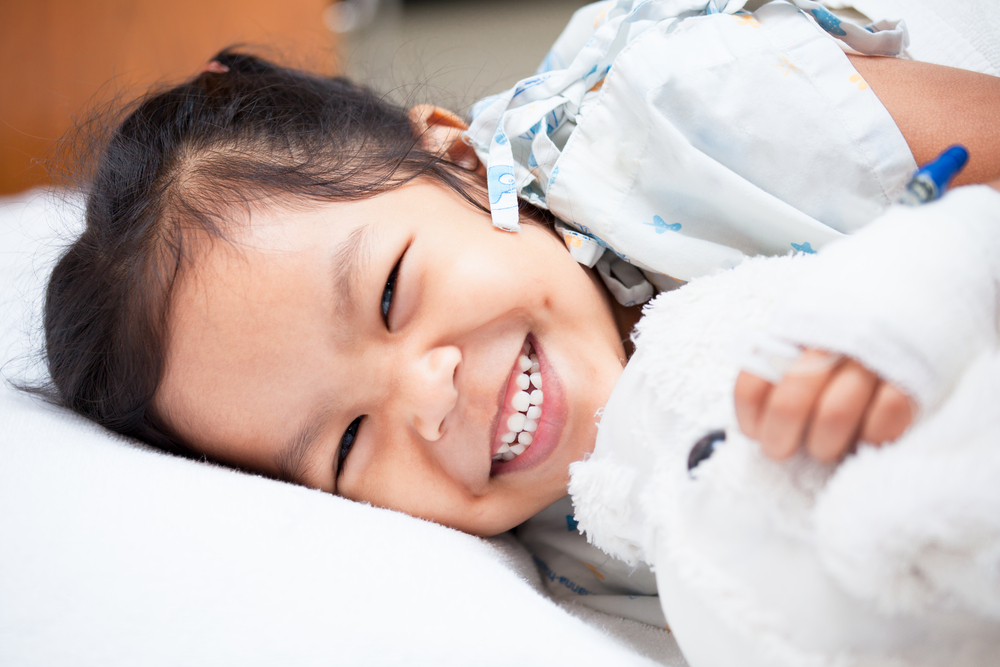Improving the health of deaf and hard of hearing children

The health and well-being of deaf and hard of hearing (DHH) children will significantly improve under the first national system that can track their care.
Hearing services and databases across Australia are currently fragmented due to the absence of a national registry linking screening and diagnostics with the ability to measure outcomes.
The Australian National Child Hearing Health Outcomes Registry (ANCHOR) will create a single system to help provide better support, particularly for those living in Aboriginal and Torres Strait Islander and Culturally and Linguistically Diverse (CALD) communities. For children living in remote communities, hearing loss is mostly caused by early middle ear infections, which can be prevented.
Murdoch Children’s Research Institute (MCRI) is leading the project involving more than 30 organisations across the country. Over three-years, the registry will be rolled-out first in Victoria and Queensland.
MCRI Associate Professor Valerie Sung, the project lead, said the registry would enable treatment and outcomes to be tracked, providing standardised, equitable care for all DHH children across Australia.
More than 12,000 children in Australia have a significant hearing loss and on average one child is identified with hearing loss every day. Language and speech development in deaf or hard of hearing children also lags behind their hearing peers.
“Australian children benefit from technologies and leadership in universal newborn hearing screening, cochlear implants and genetic diagnosis,” Associate Professor Sung said. But despite these advancements, hearing loss continues to impact our children’s life chances and impose inequities on deaf or hard of hearing children. Many urgent questions need to be addressed to improve their quality of life.
“The registry aims to help more children reach their development, learning and health potential by identifying those who need additional services and uncovering areas for improvement.
“It could also answer many important questions around whether children born with mild hearing loss could benefit from hearing aids or early intervention, why many struggle and whether we should we re-screen later in childhood.”
Victoria Smith’s son, Lachlan, 23 months, has mild hearing loss.

Image: Victoria Smith with her son Lachlan, 23 months.
“He was diagnosed after undergoing the newborn screening test and was fitted with hearing aids at two months of age,” she said.
“Early intervention was crucial so he could reach his full potential. But it took a while to find the right allied health services that were the best fit for Lachlan.”
Lachlan has regular hearing tests, fortnightly speech therapy and attends a playgroup for DHH children.

Image: Lachlan has regular testing and fortnightly speech therapy.
Victoria said a national registry would ensure DHH children don’t fall further behind their peers.
“The more data and evidence we have the better to inform best practice and ensure early intervention,” she said. For children with mild hearing loss there is no clear research that hearing aids are beneficial. It would be great to have that body of evidence as to whether that’s the best intervention for these children.”
To mark World Hearing Day, the first Australian Childhood Deafness Research Community Advisory Group, to be based at MCRI, has also been launched.
“Family engagement is a crucial element in health research as it helps to ensure that research is designed with the needs and perspectives of those with lived experience,” Associate Professor Sung said.
“The aim is to strengthen partnerships between families and researchers working in childhood deafness around Australia and ensure those who are affected are being valued and heard.”
To express your interest or for more on the community advisory group email show email address
*The content of this communication is the sole responsibility of MCRI and does not reflect the views of the NHMRC.
Available for interview:
Associate Professor Valerie Sung, MCRI Team Leader, Prevention Innovation
Victoria Smith whose son, Lachlan, 23 months, has mild hearing loss
Media Contact:
Murdoch Children's Research Institute
Phone: show phone number
Email:
show email address
About Murdoch Children’s Research Institute
Murdoch Children's Research Institute is the largest child health research institute in Australia committed to making discoveries and developing treatments to improve child and adolescent health in Australia and around the world. They are pioneering new treatments, trialling better vaccines and improving ways of diagnosing and helping sick babies, children and adolescents. It is one of the only research institutes in Australia to offer genetic testing to find answers for families of children with previously undiagnosed conditions.
Funding:
The registry is supported by the National Health and Medical Research Council.




